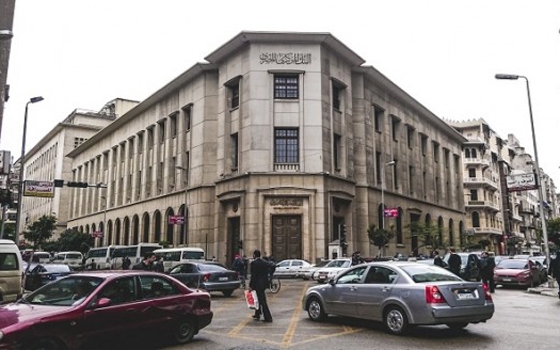Egypt's central bank raised the cap on foreign currency deposits at banks fivefold to $250,000 on to help relieve a dollar shortage that has seen imports of essential goods piling up at ports.
The central bank imposed a cap of $50,000 a month on deposits at banks almost a year ago in an effort to crush a black market for dollars that ballooned as pressure to devalue the Egyptian pound mounted.
Importers and manufacturers alike criticized the original limits, which made it more difficult to open letters of credit and left cargoes stuck at ports.
The new deposit cap of $250,000 a month only applies for imports of essential foodstuffs, capital machinery, manufacturing components and medicines. The central bank says it wants to ensure precious dollars are put to the best use and to reduce dollar demand by cutting the import bill by a quarter.
The move drew a cautious welcome from importers, who have urged the central bank to scrap dollar caps entirely.
"It is a positive step but we hope it will be extended to all companies," Ahmed Shiha, head of the importers' division at the Cairo Chamber of Commerce, told Reuters.
Egypt has struggled to restore growth since a mass uprising in 2011 drove away tourists and foreign investors – two major sources of hard currency the import-dependent country needs to finance its purchases of everything from wheat to cars.
Gulf Arab allies have averted a crisis by depositing billions of dollars in Egypt's central bank in recent years. But with oil prices down, they may no longer be able to step in.
STEP TOWARDS LIBERALISATION
With forex reserves at half their pre-uprising level, the central bank cannot defend the currency indefinitely. Yet it surprised markets in November by strengthening the pound against the dollar and holding it steady ever since.
".. the move means the central bank has started to admit there is a crunch. That is the step before the last step that will head to liberalizing the exchange rate," said Hany Genena, economist at Beltone Financial.
Economists and businesspeople said the looser cap would meanwhile see companies turn back to the black market to source dollars and channel them into the banking system.
That could further widen the gap between the official exchange rate of 7.7301 pounds to the dollar and the black market rate, which on Tuesday was around 8.62 pounds.
The central bank said in its statement that the $50,000 per month cap would remain in place for ordinary deposits not used for imports of the listed "essential goods". Those stipulations are in line with its aim of rebalancing the trade deficit by eliminating unnecessary imports.
Bassem Hussein, a manager at family-run Interfood Egypt which imports and processes coffee and spices, said it remained to be seen how the new measures would be applied.
Coffee, for instance, is not considered an essential foodstuff, though his company could benefit from the changes as it imports raw beans in large volumes for processing in Egypt.
"It will open up business for factories and manufacturers but for traders it is still the same as it only applies to basic goods," he said.
Reuters
7 March























































